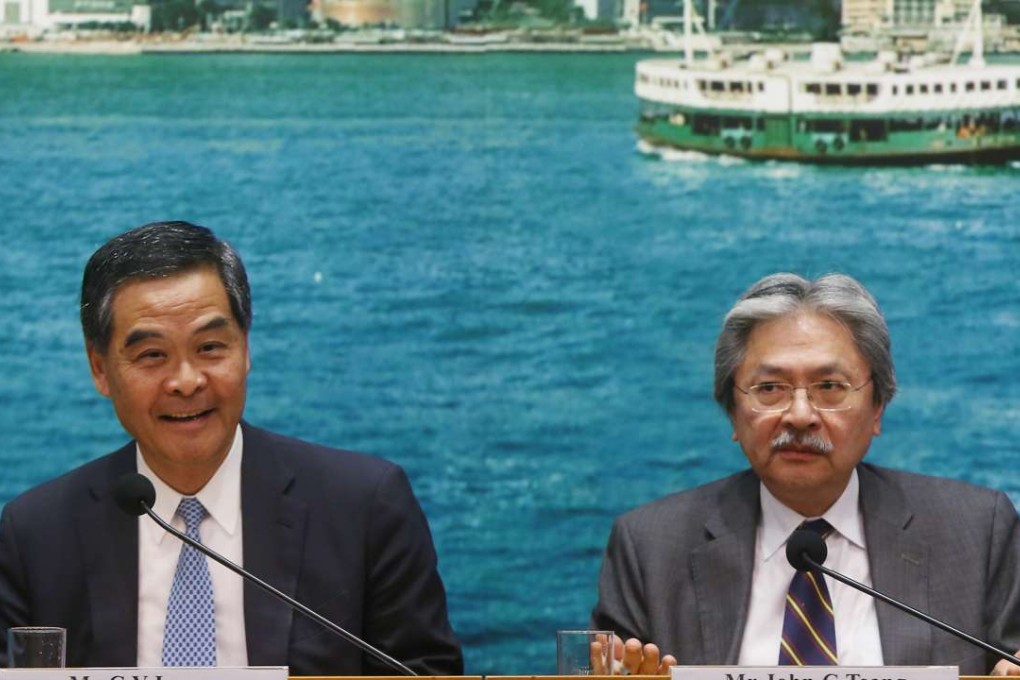City Beat | ‘You always agree with your boss’, but that doesn’t mean you’re fully behind him
Public perception of rift at the top of government remains after comments by Financial Secretary John Tsang, and it’s uncertain who will have the last laugh in this chief executive competition that just keeps on growing

“You asked me if I agree with my boss. You always agree with your boss. No question about that.” Wait a minute – these words from Financial Secretary John Tsang Chun-wah were neither a statement of loyalty nor an expression of unity. At least not in the eyes of many Hongkongers watching last week’s much-anticipated government press conference on the Wang Chau public housing saga.
It was the second time Tsang had said something to that effect in public. The first time was when he was a guest at a seminar organised by the Post, and was asked how to comment on Chief Executive Leung Chun-ying describing him and No 2 official Carrie Lam Cheng Yuet-ngor as “my capable aides”.
Tsang told the audience that being in the government for decades, he had a rule for himself: never comment on your boss.
Common sense tells us that this “always agree with your boss” theory can be just a way to survive in the workplace, whether in a government bureaucracy or the private sector. It has nothing to do with real teamwork or partnership, simply because to “agree with” the boss doesn’t necessarily mean one is fully behind the boss.

And in politics, this kind of diplomatic answer can be a public relations effort which leads to open interpretation. This is exactly the case among the top three officials now, especially Leung and Tsang. It gets even more complicated as all three are seen as jockeying for the chief executive’s post.
To be frank, it is not unusual for top officials to hold opposing views or even hate each other within a government. It has been obvious for years that Leung and Tsang do not see eye to eye on public spending and other policies. But what shocked many Hongkongers was Tsang and Lam quickly and openly distancing themselves from Leung over the alleged “collusion” between the government and powerful rural forces over the Wang Chau project.
